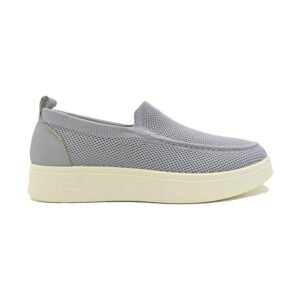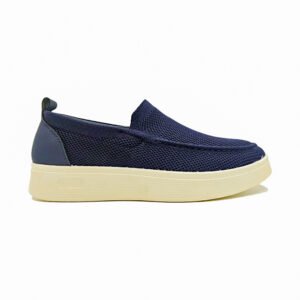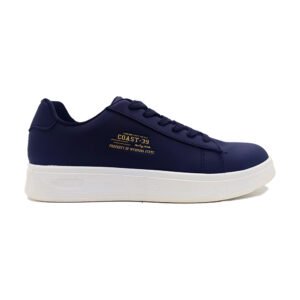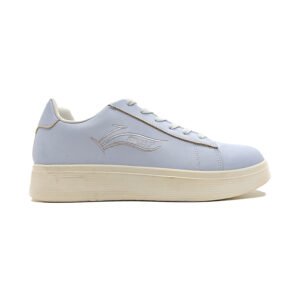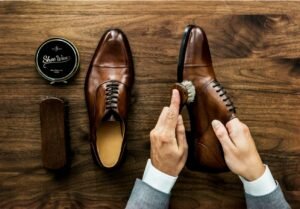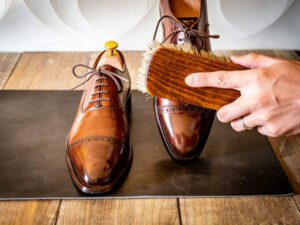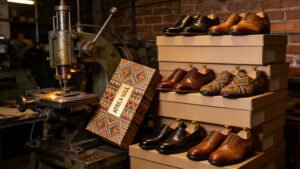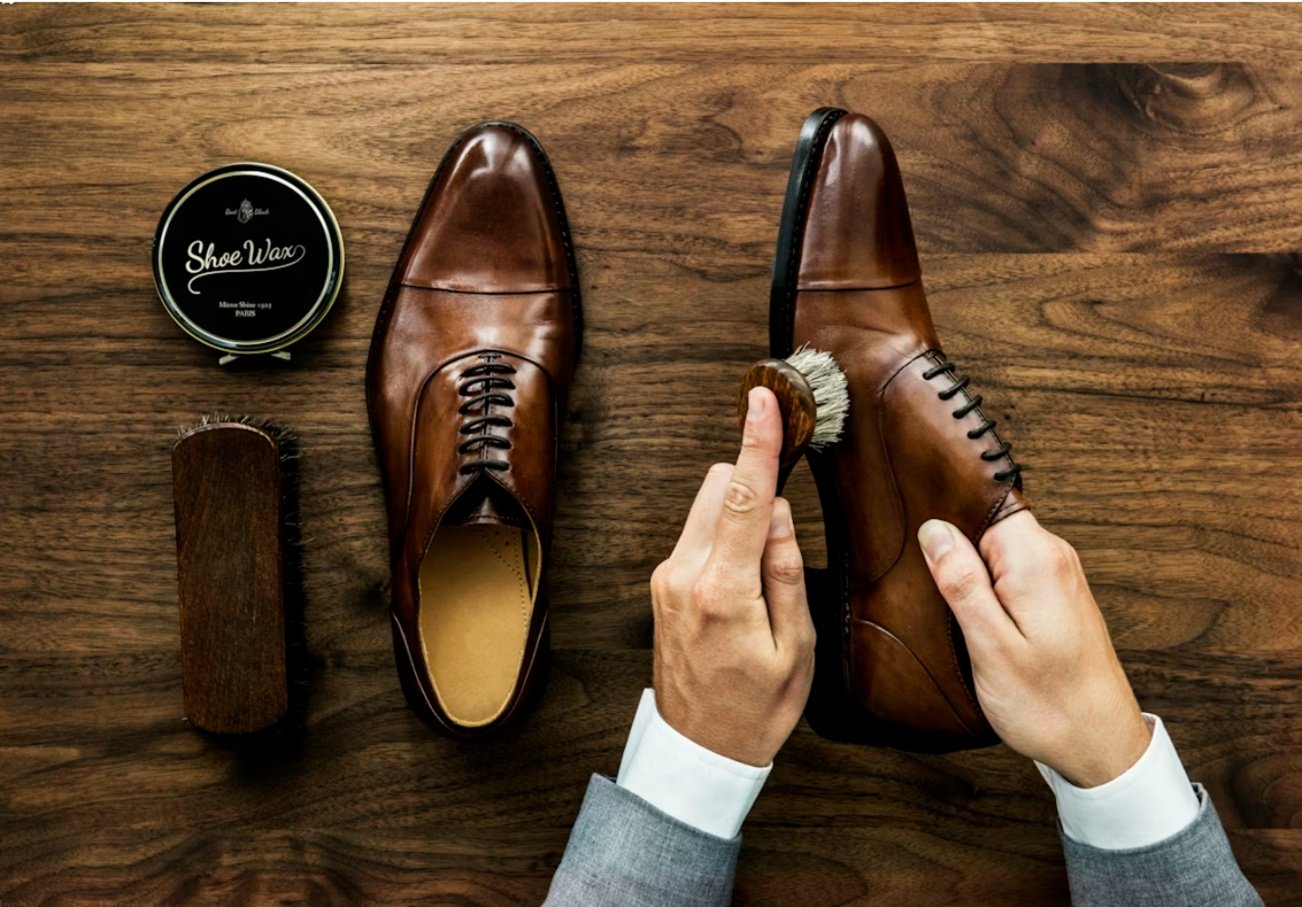Last Updated on 2025-09-06 by Topmenz Shoes
Casual shoes have become a cornerstone of modern footwear, prized for their versatility and comfort. However, their true value lies in their ability to balance style with functional breathability. As a custom shoe factory, we recognize that breathability is not just a luxury—it’s a necessity for preventing moisture buildup, odor, and discomfort during prolonged wear. This article explores the most common breathable materials used in casual shoes, their unique properties, and the innovative technologies that elevate their performance.

1. Natural Materials for Breathable Casual Shoes
Natural materials remain a gold standard for breathability, offering inherent airflow and moisture-wicking properties.
1.1 Cotton & Canvas
Cotton and canvas are staples in casual shoes like espadrilles and slip-ons. Their open-weave structure promotes airflow, while their lightweight nature ensures all-day comfort. For instance, canvas sneakers with mesh panels can reduce foot temperature by up to 15% compared to synthetic alternatives.
1.2 Leather
Full-grain leather, while dense, develops micro-pores over time, allowing gradual airflow. Suede and nubuck leather, with their brushed surfaces, enhance breathability and are ideal for casual loafers and derbies1015. Vegetable-tanned leathers, free from synthetic sealants, further optimize natural ventilation.
1.3 Linen & Hemp
Linen blends and hemp fibers are increasingly popular in summer casual shoes. These materials wick moisture 30% faster than cotton, making them ideal for humid climates.
2. Synthetic Innovations in Breathable Casual Shoes
Engineered synthetics combine durability with advanced airflow technologies.
2.1 Knitted Mesh
Knitted mesh, such as Adidas Primeknit or Nike Flyknit, uses 3D-weaving techniques to create seamless uppers. These materials adapt to foot contours while maintaining 360° ventilation, reducing sweat accumulation by 25%.
2.2 Microfiber & PU Synthetics
Microfiber mimics leather’s softness but with enhanced breathability. Polyurethane (PU) coatings with micro-perforations (0.1–0.3mm diameter) create targeted airflow zones in casual sneakers and hiking shoes.
2.3 TPU Composite Leather
Thermoplastic polyurethane (TPU) laminated with micro-perforated layers offers waterproofing without sacrificing breathability. For example, hiking-inspired casual shoes using TPU achieve a breathability rate of ≥280mm/s while maintaining IPX7 waterproof ratings.
3. Hybrid and Technical Fabrics for Casual Shoes
Combining natural and synthetic materials maximizes breathability and functionality.
3.1 Layered Mesh-Nylon Designs
Casual shoes designed for outdoor activities often feature nylon mesh outer layers paired with moisture-wicking polyester linings. This dual-layer system accelerates sweat evaporation by 40% compared to single-layer fabrics.
3.2 Recycled and Bio-Based Materials
Eco-friendly options like Piñatex (pineapple fiber) and recycled polyester mesh reduce environmental impact while maintaining breathability. These materials are increasingly used in sustainable casual shoes, offering comparable airflow to traditional synthetics.
4. Manufacturing Techniques Enhancing Casual Shoes’ Breathability
Advanced production methods ensure materials perform optimally.
4.1 Laser-Cut Perforations
Laser technology creates precise micro-perforations (0.2–0.5mm) in leather or synthetic uppers. This method prevents fraying and allows customizable ventilation patterns, such as gradient perforations along the arch.
4.2 3D Knitting Technology
Automated 3D knitting machines produce uppers with variable stitch density—tighter in high-stress areas (toe box) and looser around the midfoot for enhanced airflow.
4.3 Anatomical Last Design
Custom lasts created via 3D foot scanning ensure a snug fit that minimizes friction hotspots while maintaining air circulation around the foot.
- Rated 0 out of 5
- Rated 0 out of 5
- Rated 0 out of 5
- Rated 0 out of 5
5. Case Studies: Breathable Casual Shoes in Action
5.1 Urban Commute Sneakers
A hybrid design combining knitted mesh uppers, cork insoles, and EVA midsoles reduces foot temperature by 18°C during city walks. The cork’s natural porosity wicks moisture, while EVA’s air-infused cells cushion impacts.
5.2 Hiking-Inspired Casual Boots
Waterproof TPU membranes with laser-cut vents enable breathability rates of 300mm/s, ideal for trail-to-town transitions. These boots maintain dryness even in rainy conditions.
5.3 Summer Espadrilles
Linen-cotton blends with jute soles achieve a breathability score of 4.5/5 in lab tests, outperforming standard canvas by 20%.
6. Maintenance Tips for Breathable Casual Shoes
Preserve airflow performance with proper care:
- Cleaning Mesh: Use soft brushes and pH-neutral detergents to unclog pores.
- Leather Conditioning: Apply non-greasy conditioners to maintain natural breathability1516.
- Drying: Avoid direct heat; use cedar shoe trees to absorb moisture.
7. The Future of Breathable Casual Shoes
Emerging trends include:
- Self-Cleaning Fabrics: Photocatalytic materials that break down sweat under UV light.
- Smart Membranes: Temperature-responsive layers that adjust porosity based on foot heat.
- Biodegradable Mesh: Compostable materials with airflow rates matching synthetic counterparts.
Elevating Comfort Through Breathable Casual Shoes
Breathability is the unsung hero of casual shoes, transforming everyday wear into a blissful experience. By leveraging natural materials, synthetic innovations, and precision manufacturing, custom casual shoes can deliver unmatched comfort without compromising style. As technology evolves, the fusion of sustainability and smart design will redefine what breathable footwear can achieve.
Any questions pls contact custom shoes expert Whatsapp +86 13392749315 and Get the latest news and updates straight to your email inbox.

